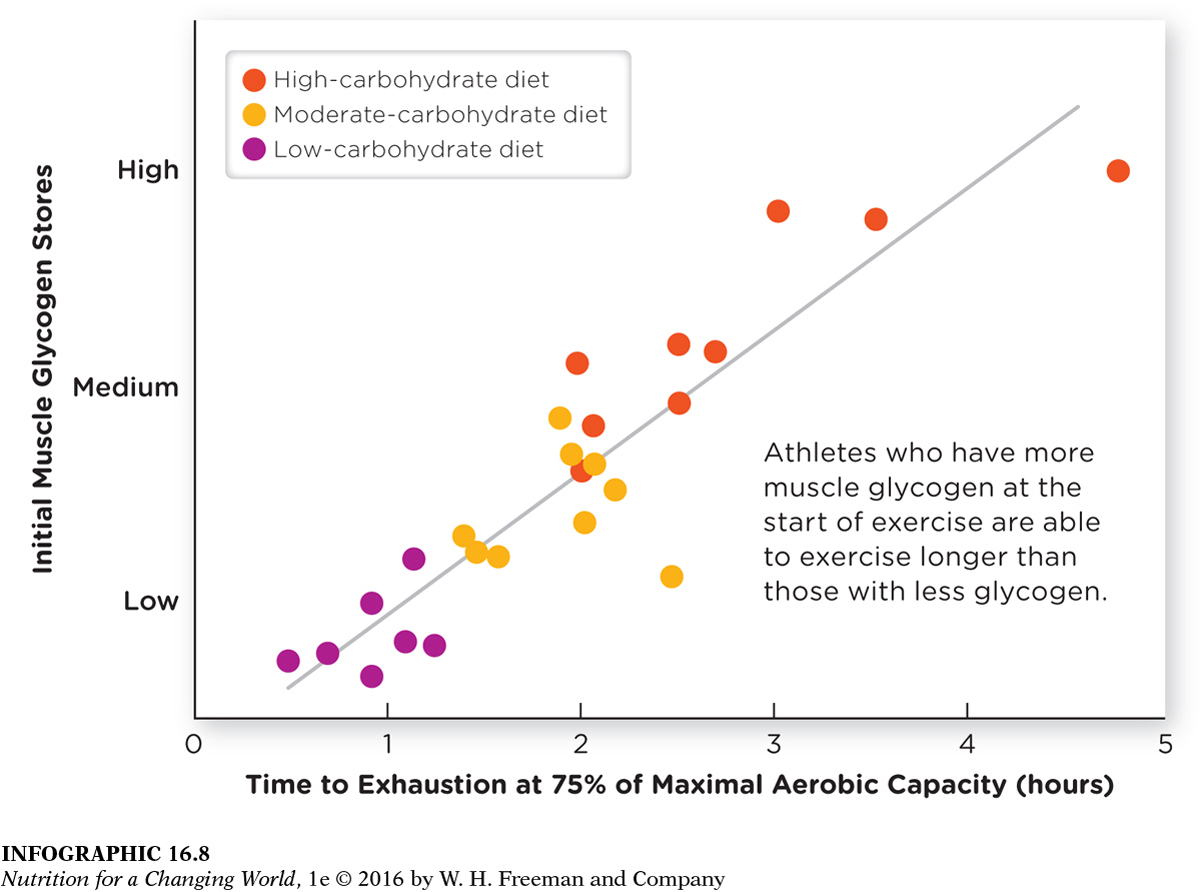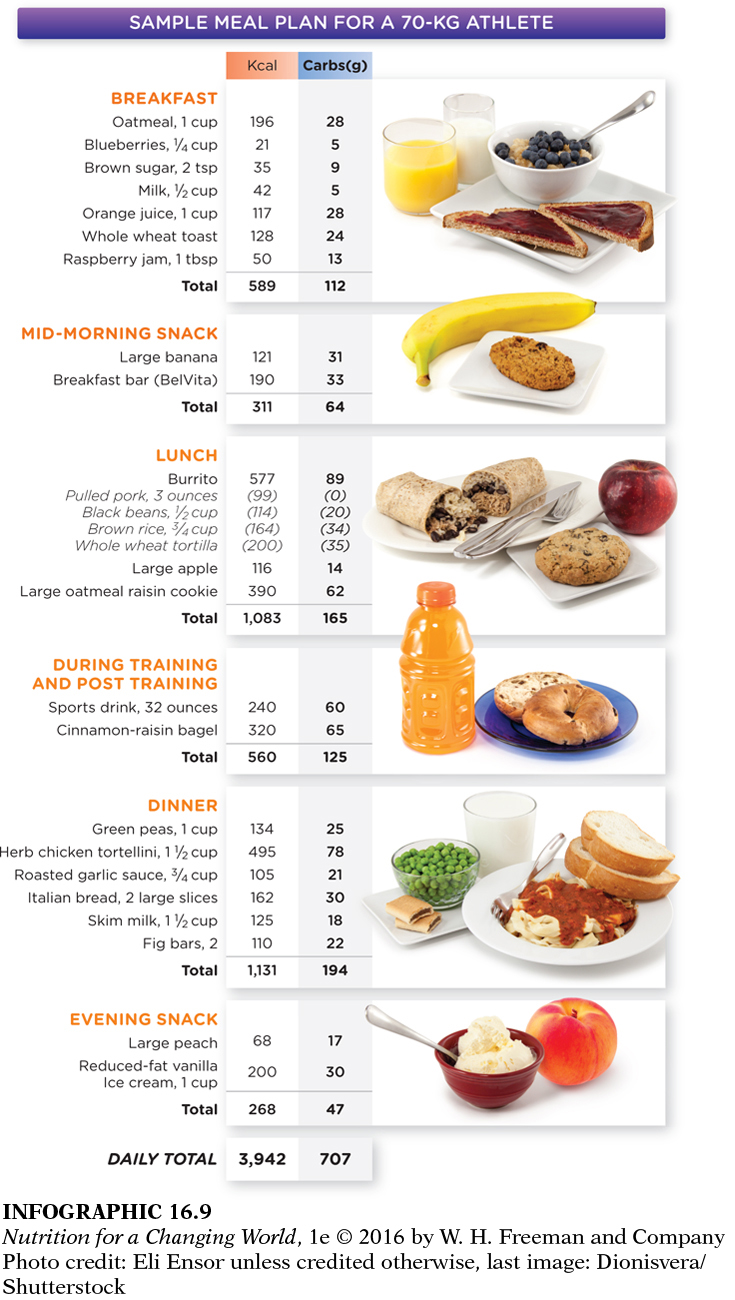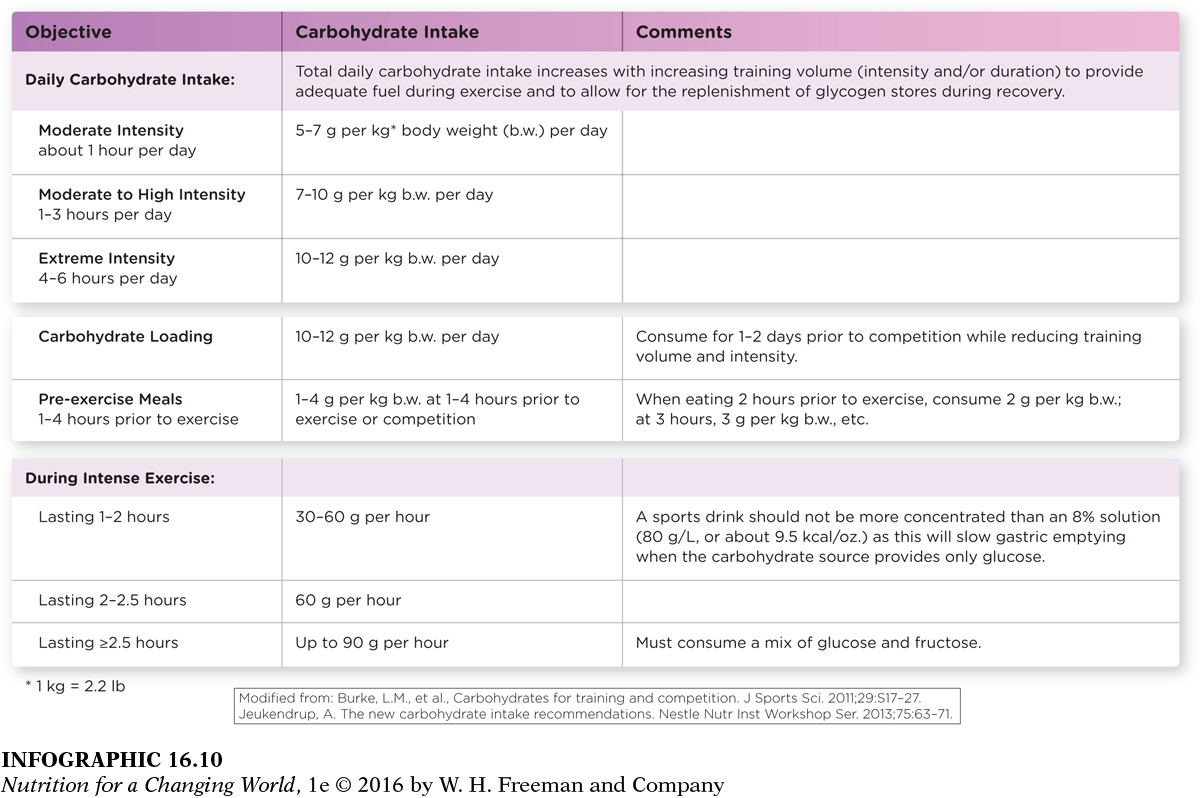DIETARY CARBOHYDRATES FOR ENDURANCE EXERCISE
GLYCOGEN storage form of carbohydrate in the muscle and liver
Because glucose is such an important source of energy for muscle contraction, the body does its best to store glucose in a form that is easily accessible. Dietary carbohydrates are stored in the liver and muscle as glycogen, a polymer of glucose (see Infographic 4.2). At any one time, a body’s stores of glycogen can fuel up to 2,000 calories of activity—

Question 16.6
 Explain why a high-
Explain why a high-
Athletes with ample stores of muscle glycogen can exercise longer and more vigorously than can those with limited stores of muscle glycogen. A high-
To increase muscle glycogen stores even more, and further delay fatigue during competition, endurance athletes often use a technique called carbohydrate loading. The resulting increase in muscle glycogen stores can increase time to exhaustion during intense exercise by 90 minutes or more. To “carbo load,” athletes will typically consume about 10 grams to 12 grams of carbohydrate per kilogram of body weight each day, for 1 to 2 days prior to competition, while reducing training volume and intensity. At 1 to 2 hours before exercise, they will often consume meals or snacks that are rich in carbohydrates to top off glycogen stores and to provide additional carbohydrates to be used during the upcoming bout of exercise. As the time between eating and beginning exercise increases so should the amount of carbohydrate consumed before an event or training bout. (INFOGRAPHIC 16.9)

Question 16.7
 Why must calorie intake exceed expenditure for carbohydrate loading to be successful?
Why must calorie intake exceed expenditure for carbohydrate loading to be successful?
Calorie expenditure must not exceed intake in order to assure storage of excess glucose in the form of glycogen.
Eating carbs during exercise can also be helpful. During competitions, for instance, Hubbell often eats carb-
For exercise sessions lasting 1 to 2 hours, experts recommend that carbohydrates should be consumed at a rate of at least 30 grams per hour. As the exercise duration increases, so also should the amount of carbohydrates ingested. When the carbohydrates being consumed comprises glucose alone (dextrose, maltodextrin, and/or starch), the maximum rate of ingestion should be limited to 72 grams per hour, because glucose cannot be absorbed from the small intestine and utilized faster than this. This rate of carbohydrate intake should be sufficient for exercise sessions lasting up to about 2.5 hours.
High rates of carbohydrate ingestion during exercise can lead to discomfort in some people; however, research has shown that athletes can become accustomed to this practice when they regularly consume carbohydrates during training, along with a high-

Question 16.8
 How many grams of carbohydrate should a 154-
How many grams of carbohydrate should a 154-
Two hours before competition, a 154-
154 pounds / 2.2 pounds per kg = 70 kg
70 kg × 2 g per kg = 140 g
The individual should consume 140 g of carbohydrates two hours before competition.
An athlete that weighs 132 pounds should consume 10 to 12 grams of carbohydrate per kg body weight per day.
132 pounds / 2.2 pounds per kg = 60 kg
60 kg × 10 g per kg = 600 g
60 kg × 12 g per kg = 720 g
The athlete should consume between 600 g and 720 g of carbohydrate.